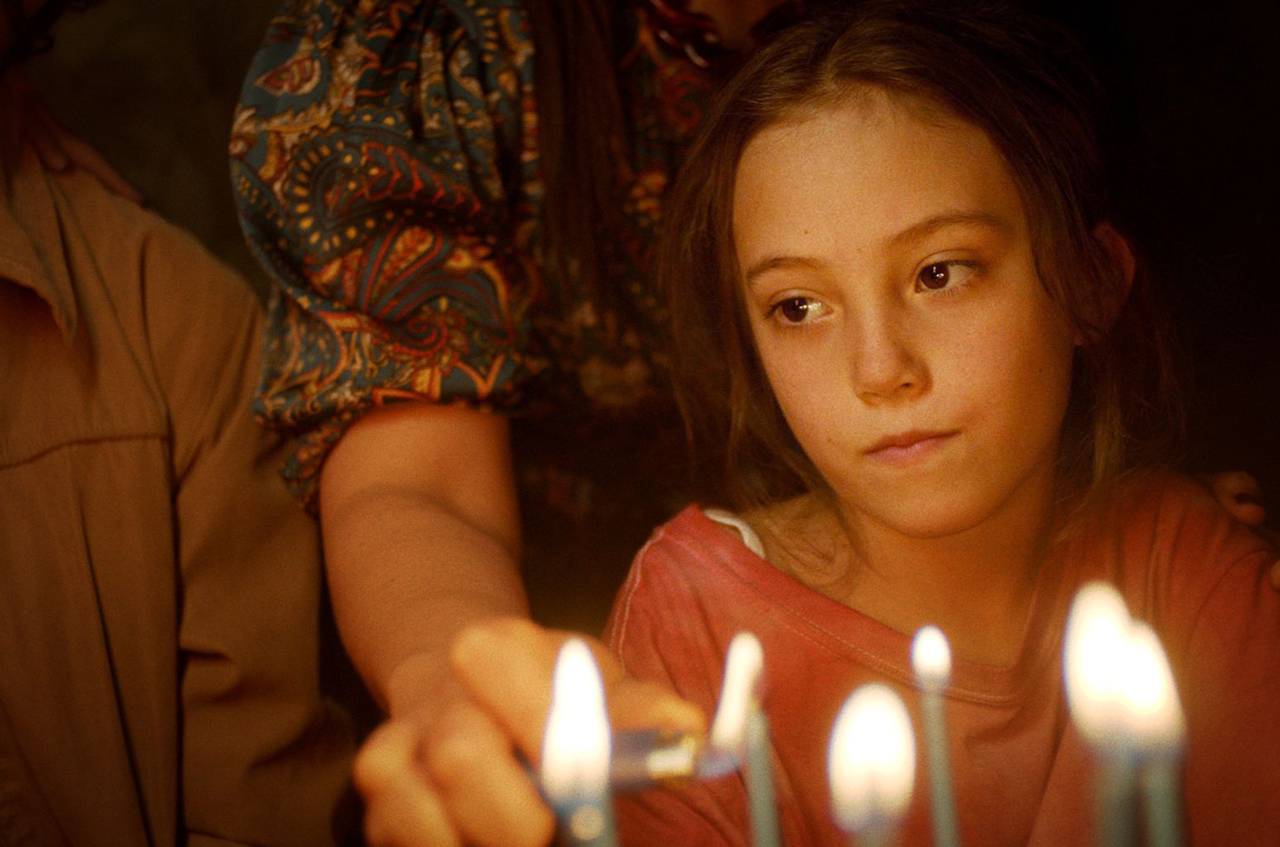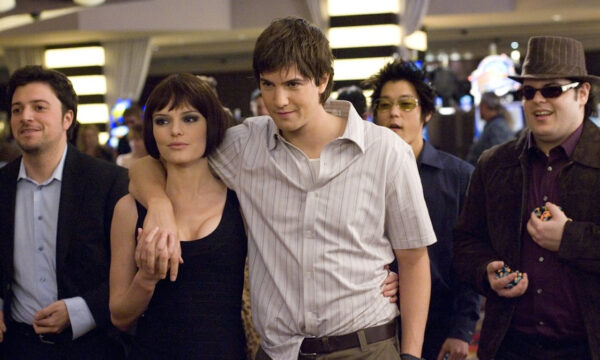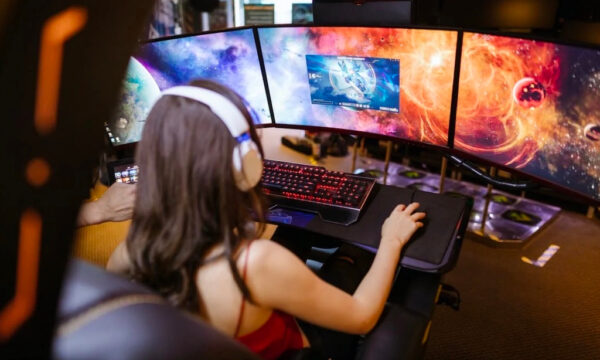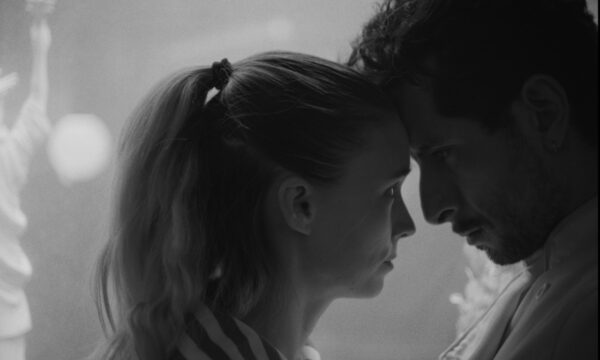“It’s super important to put attention on childhood, it shapes who children become”: Lila Avilés on Tótem at the Belfast Film Festival

Tótem is a childhood coming-of-age story by Lila Avilés following an important day in seven-year-old Sol’s life. Her father, Tona, is ill and might not be alive for very long. As his birthday approaches, the family all plan a spectacular party for him in their family home. There are games, performances and speeches, but the highlight of the film is Naíma Sentíes’s performance as Sol, who navigates through the big household of various family members all busying themselves with tasks and activities to help prepare for the party. Sol watches all the chaos unfold while also contemplating what this day means for her father. In a dedication to her teenage daughter, Avilés tells a nuanced story of coming to terms with mortality at an early age, and the meaning of personal connections within a bigger family.
Avilés made her directorial debut in 2018 with The Chambermaid – a film which was selected as an entry for Best International Feature Film at the 2020 Academy Awards. Before that, she worked in various productions doing behind-the-scenes work, ranging from acting, assistant directing, to make-up and costume design. But her one true goal has always been to make films. As her second feature, Tótem aims to explore the special days in a person’s life – the days which impact the person the most and make significant changes for them in the future. The Upcoming caught up with Avilés at the Belfast Film Festival to talk about her inspiration for the film, casting for Sol, and the importance of exploring death in childhood.
Can you give us a brief introduction to your film Tótem and what inspired you to make it?
Tótem is a film about a special day in the principal character’s life. She’s called Sol and she’s seven years old. I was interested in microcosm and I wanted to return to that [family] house – that essence of when we were super young; to be in that position of how we navigate through our home and the relationships between family, friends and those special links.
You dedicated this film to your teenage daughter. How did she react when she first saw it?
It was a wonderful and super unique day – a day that was super special for us. We went to the Berlin Film Festival together. It was the day of the premiere and it was super special because I made it. But also, with all the editing, I had her in my mind the entire time. What would be so wonderful for her? And [I found] what was so wonderful is both of us who were deeply wounded.
Which traits of Sol as a character did you draw from your own life and which were entirely distinct?
It’s like this with every character, you know? There’s definitely a part of me that’s just like her. I was always the kid who could be much to my cousins, but also needed a lot of time alone – just looking certain things, trying to catch them.
As I always say, there’s a lot of us in all the characters – not only one. I can be super tender like Alejandra, or Nuri, or like the mom. We all have our different faces, and we’re all mixed. This film started out super personal and then veered off into a lot of different paths.
Why did you want to focus on seven-year-old Sol’s perspective for this particular story? What is it about viewing tragedy from a child’s lens that is appealing to you in terms of storytelling?
I think it’s super important to put attention on childhood. That is the wonder; that is who they’ll be when they become adults. It’s important to think about those first seven or eight years. I wanted to return to the essence of those unique days because there are these days when death is real. Where it’s material and physical. Then there are these days when you change and it’s somehow the death of an old you. It’s life and it’s about the normal days and also the days that are pretty special in our lives. So, I wanted to go deep into those days.
How did you go about casting Naima for Sol? What was it about her that captivated you enough that you wanted her to be the foundation of your second feature film?
I wanted someone that would be brilliant, but also a kid – a seven-year-old girl. Someone with that maturity and self-taught spirit. She’s awake; a girl that wants to search for answers. I did the casting with Gabriela Cartol. She was the main actor in my first film The Chambermaid. I invited her to come and help with the casting. It was super hard but I’m super happy with the results. There were not more than forty girls who auditioned for Sol. I was asking everyone when we were making the cast if they knew a girl who would be fit for Sol. That’s how I got to her.
Naima was fantastic in this film and I’m sure she’s learned a lot from you through filming. Did you learn anything from her at all?
Yes, absolutely! I think it’s always a matter of going back and forth – give and take. It’s a thing that you give, and you give, and then you get in return. Like for example, to catch her spirit. She can be super gentle and sensible, she’s a nice girl and also very intuitive. What I love is that she’s super generous. She normally spends a lot of time with her grandparents and she’s super beautiful with them. She’s got a kind of patience that is nice and is very grateful for her family.
We know that the events in the film all took place in one day. But how long did filming actually take, and was it difficult trying to piece together the timeline of one single day from multiple different shoots?
We made the film in five weeks, it was super hard. I knew from the very first moment because of its fragility, and we needed to be super consistent. In this kind of film, there’s no mountain or scenery that can help you. It’s very difficult. I’m not so intellectual that I think so much of the boundaries of how we’re going to [show the day]. It was more of thinking of those special days – the days that change us. Those days that are super unique. Yes, time goes by differently – your perception of time is different than mine. I guess if you have more locations, it’s a little bit easier. It’s a matter of that it will always give you rhythm because you are in different landscapes. I also don’t use music normally, so it’s hard to catch the tension and the energy of the story and characters in one location.
There are a lot of animals and animal imagery in Tótem. Why do you like working with animals and what is it that they symbolise to you?
I think it symbolises for me – and for all – that we come from something much deeper. It’s a communion, a reciprocity between a lot of people. It’s not only people; it’s nature, it’s animals, it’s everything that [surrounds us]. Like somehow, when you live in the city, you forget all the time that they’re there and that you’re also part of that. I think it’s a matter of being present and paying attention to it. As simple as that.
With the success of The Chambermaid and now Tótem, are you ever intimidated by your own work when it comes to planning your next project? Do you ever wonder if it’ll be as well-received or as successful as its predecessors?
Not at all. I think that there will always be pressure. I wonder if that’s something you think about the directors that you admire? They have made a huge amount of films, and some are better and some you don’t like, but it’s a journey in cinema. For me, I don’t know how many films I’m going to do because I have only made the two, but it would be so nice to keep doing films without thinking so much about how people are going to take it. It’s more like the curiosity as a filmmaker. Obviously, you want it do well. I guess what I love about Agnès Varda is she had this possibility of doing small films and big films, but always with that curiosity, and without the pressure of thinking: “this needs to be bigger” or “this needs more awards”. I think that’s the main thing of being super in the ground is that the curiosity goes deep enough for you to try and understand what it is you actually want to do. If you think otherwise, then you’re no longer having fun.
You’ve done a lot of things to do with the behind-the-scenes process of making a film before your directorial debut. You were an actress, an assistant director, a make-up artist and a costume designer – the works. Do you ever think you’ll go back to any of those?
Not at all. I did it all because I wanted to be a filmmaker. Now that I’m a filmmaker, obviously, I don’t want to do anything else. It’s a matter of – I can do it for my films. But I just adore being a filmmaker so much that I can go back to theatre, but not to do costumes anymore. That was to make a living. The dream is to be a filmmaker. A director.
Mae Trumata
Tótem is released in select cinemas on 1st December 2023 and is also available on the streaming platform Mubi.
Watch a clip from Totem here:
























Facebook
Twitter
Instagram
YouTube
RSS